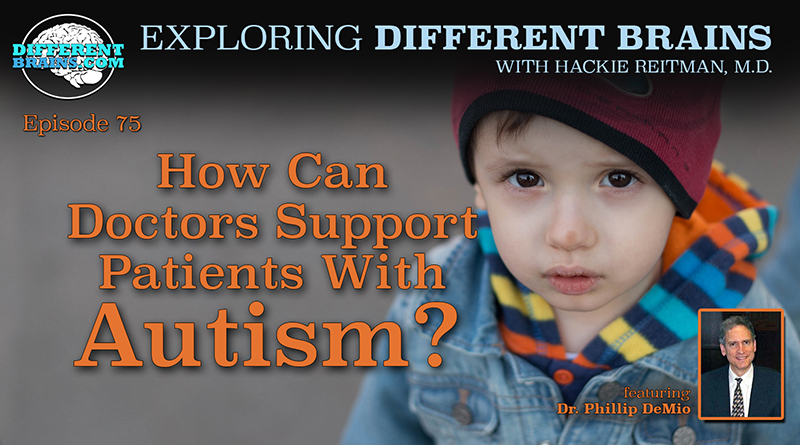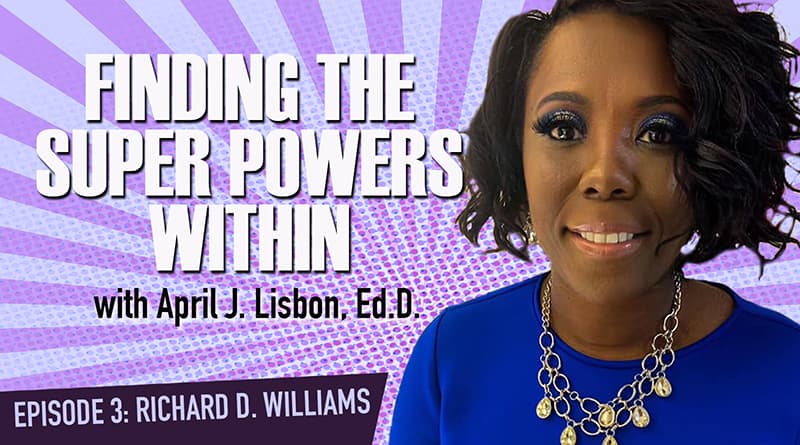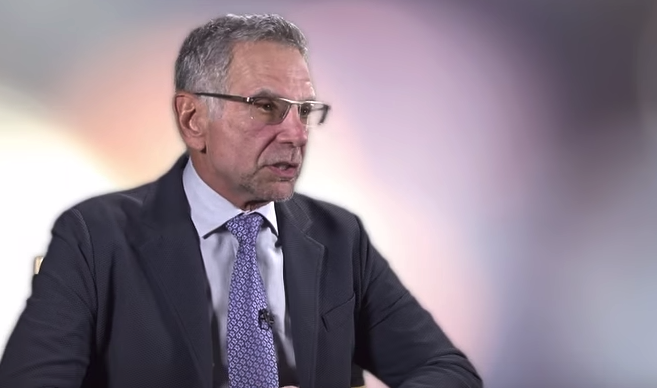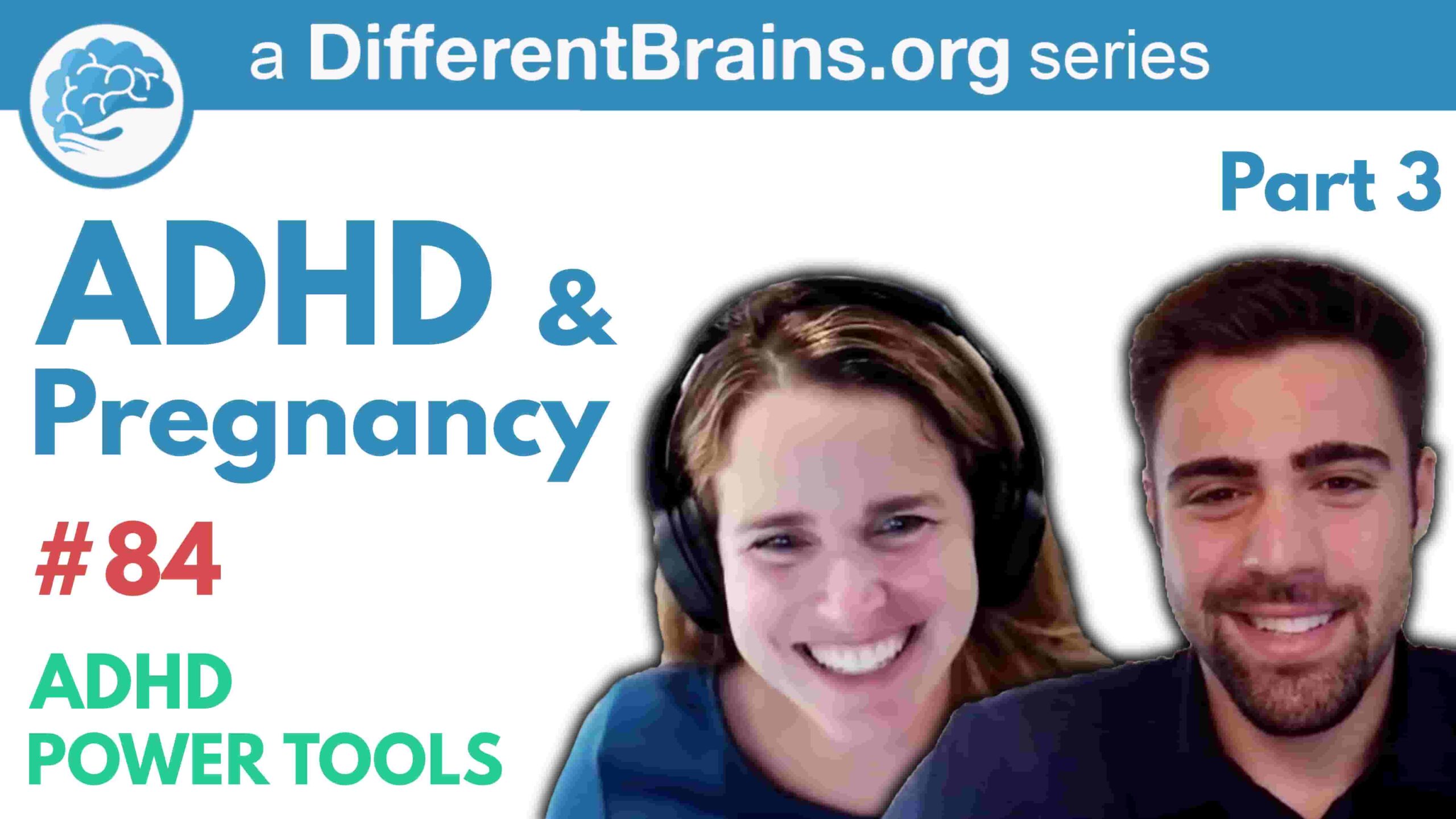
How Can Doctors Support Patients With Autism? with Dr. Phillip DeMio, of the USAAA and AMAB | EDB 75
In this episode, Hackie Reitman, M.D. speaks with Dr. Phillip DeMio, chief operating officer of the US Autism & Asperger Association (USAAA) and the founder of the American Medical Autism Board (AMAB). Both he and Dr. Reitman will be presenting at the USAAA’s upcoming 12th annual World Conference and Expo, alongside Temple Grandin, previous guest Stephen Shore, and many more amazing experts. Dr. DeMio discusses his own experiences raising a son on the spectrum, how he became an expert in treating the misunderstood condition of Lyme disease, and the need for more medical professionals to become aware of neurodiversity.
For more about the upcoming USAAA conference, visit: http://www.usautism.org/conferences/index.htm
For more about Dr. DeMio’s work, visit: http://www.DrDeMio.com/
For more about the US Autism & Asperger Association (USAAA), visit: http://www.USAutism.org/
For more about the American Medical Autism Board (AMAB), visit: http://AMAB.com/
60 Second Preview:
To listen or download the podcast version of this episode, see the embedded player below.
<
Or look for us on your favorite podcast provider:
iTunes | Stitcher | SoundCloud
[expand title=”View Full Transcript”]
HACKIE REITMAN, M.D. (HR): Hi, I’m Dr. Hackie Reitman. Welcome to another episode of Exploring Different Brains. Today we’ve got the pleasure of speaking with a guy who I really admire, I first met him when we were both speaking at the USAAA meeting out in Tucson. It’s Dr. Phil DeMio, who’s a very interesting guy. Not only is he like the chief operating officer of the USAAA, which is the US Asperger and Autism and I forget what the rest of the rest of the initials stands for–
PHILLIP DEMIO, M.D. (PD): It’s all As.
HR: It’s all As, baby. And he’s also the founder of the America Medical Autism Board, because Phil DeMio, like myself, is amazed that we MD directors get like zero training in the stuff. Phil, welcome to Exploring Different Brains.
PD: Thank you Dr. Reitman. Hackie, good to see you.
HR: Good to see you again too. I just wanna share with our Different Brains audience, I was on a panel out in Tucson and Phil knows me a little bit. I was on a panel with real scientists, and they are really doing great research on different nutrition. And one was speaking about folic acid and a question came from the audience about–“what’s the best ways to get folic acid in?” And the researcher who was talking about different pills and pharmaceutical things said, “well actually the best way to get it is to take in all the green leafy vegetables and the healthy natural foods.” And Phil asked me, did I want to comment on all the folic acid research that this great scientist was talking about? I said, “Listen, I am not as qualified as these people up here, because I listen to this great dissertation, and what I got out of it was that folic acid is good for your brain and you ought to eat a lot of healthy vegetables and green leafy stuffs and that sums it up.” Did I say that right, Phil?
PD: Yeah! I think that we talk about vitamins and supplements and methylation and folic–often times that’s the only way we can get it in a very picky kid or adult who has Asperger’s or who has autism, or another illness. Some of the kids can’t swallow and they have feeding tubes so sometimes those are the ways we do it. But if they are very good eater or if they are willing to eat, some of them you just tell them,” think of the kale as a medicine and eating a whole orange as a medicine,” and that has the folic acid in it. And like you say, green leafy vegetables, duck beans, the beans have a lot of it. So if they‘ll eat these foods, great. That’s the great way to get it.
HR: Phil, tell our audience how you got into autism.
PD: Yeah, I was doing about 25% alternative medicine and 75% conventional medicine. By training–I’m a laboratory doctor–I used to do autopsy and biopsies, I did internal medicine, the adult family care basically, primary care for grown ups. And I also did–I’m board-certified in emergency medicine. And 25% of the time, I had an office where I took care of common problems with nothing but nutrition and physical therapy. It’s all we did. Every once in awhile, we we’d use a little bit of medication. And we de-emphasized that and we got more and more alternatives. I started getting referrals from other doctors mainly, but believe it or not, with psychiatrists. Particularly child’s psychiatrist, who sent very challenging cases, that they had hard time with, to me. And we added things in and we took care of car accident victims for pain with our natural treatment and we would sometimes use medication. But therapy and things that really frankly they weren’t getting told by other doctors. And they were a mixed bag of people that needed help for long-term problems.
Then my wife and I, after been married for about 5 years, had our son and within two years he developed autism. We took my son to MD’s and we got dismissive, we got criticized as parents, we got hatred. But one thing we didn’t get is help, except from two people. One is another parent, they introduced us to some therapies, and they introduced us to some supplements. And I had learned a little bit about them but there were whole-heartedly onboard about it and their kid was doing pretty well. He wasn’t perfect, he wasn’t cured. He’s now a patient of mine by the way, and he’s about 20 and he’s going into the college level now. He’s a brilliant kid. And then the other person that helped was the head of neurology at a children’s hospital, who leaned forward, looked me in the eye and said the, “one thing we see that help the kids is these alternative therapies. We can’t do them here because we don’t accept them.” but he looked me in the eye and said, “we do see the children improve of this.” That’s all I needed to hear, that there were credible people who believed it. And I found that there were thousands of doctors, scientists, and intelligent people that believed in the medical basis as one major avenue treatment. It’s not the only treatment, it’s a major treatment.
HR: And you know you touched on a couple of different areas here that are very important. One is–and this is one of our challenges I find in differentbrains.com is what I call getting everybody to play nicely in a sand box. Because if you say one wrong word, half of the people get angry with you and I am trying to keep everybody happy.
PD: I think you’re right. We should play in the sand box the right way because, the heart surgeon who wants to operate, and the heart non surgeon that doesn’t want to operate and just wants to use medication, they disagree with each other but they are courteous about it. We need to be courteous about it, so the parents aren’t in the middle, and the kids aren’t the middle, and the adults with autisms, and Asperger, and ADHD and schizophrenia aren’t in the middle and they have a choice and all these options offered to them, when it’s reasonable care for them.
HR: Now this is a segway into the overlap, into your journey, into Lyme disease. And tell us the connection as you see it.
PD: We had an increasing number of people that contact us. We’d been treating Lyme for years, because as I said, I had my training in internal medicine and I always had some care in the office, that primary care for adults. We were very busy with the autism world, the ADHD and OCD kids, mostly children, mostly school age. And we got more and more calls from people who were increasingly dismissed by self-appointed main stream medical doctor and medical facilities, when the patients where convinced they had Lyme or they were even told that they had Lyme, but there’s nothing they can do or they had had Lyme, but its gone now with a week of antibiotics or with one pill of doxycycline. And they were still sick.
HR: Sorry, back up for a minute–Phil, back up for a minute and just explain to our audience, those who might not know the basics of Lyme disease. What it is and then go on.
PD: It’s a bacterial infection that you get from the bite of a tick. Can also be passed on congenially, but the naysayers in mainstream medicine are–there are some that have turned the other way now and are starting to be opened minded. but they don’t believe in long term Lyme or they don’t believe that there’s any Lyme in somebody’s body. In certain states, many doctors in Ohio, where I am sitting right now, will tell you, “you cant get Lyme in Ohio, it can’t begin, it’s a sustained from a tick bite in Ohio.” well as urban as this is, we have patches of trees and we see deer run around this area, behind Kmart and between here and the coffee shop and the bank, they run around and they carry ticks on them. And the ticks have been tested by the Ohio dept. of natural resources and they contain the Lyme germ. So animals in the state get Lyme, and so do humans and they get it from tick bites. And some of the women, well a small number of women can pass it along congenially. We know other tick bites such as Babesia, with a B, have been well documented to be passed along in animals and humans, from the mother to the baby.
So we were getting an increasing number of people who needed help from Lyme and they either believe that they had Lyme or a doctor told them they had Lyme but they thought it was still there and wasn’t treated properly. So there’s a whole society of thousands of us around the world, where Lyme exists in temperate areas mostly and who see this continually and there are unequivocally outright cases of Lyme who need help who aren’t getting it from the mainstream, you know, circles. Sound familiar? So similar too with our autism kind of journey, we wanted to help those people, and that’s what we do. So we do a great thing for them, and I am just being a little bit facetious. We treat them. So just like somebody with a broken bone should get treatment, people with Lyme should get treatment, so we treat them. And we use a combination of alternative and mainstream medicine. Some people we treat with no antibiotics, some people that’s all we treat them with. We usually use both.
HR: Now you’re going to be speaking at the USAAA conference in Portland, Oregon, August 25th-27th. Are you not?
PD: Yeah! That’s where we’re having it, yep.
HR: Okay, and tell us more about the conference in the USAAA and how you got into that.
PD: Yeah! So US Autism and Asperger was founded by Dr. Larry Kaplan. He and his wife Gail are the parents of twins, they have the two twins. One is brilliant and the other one does not have autism, okay? So, one is brilliant with autism, and the other is brilliant without autism. He saw how deficient things were. So he wanted to do an organization, so until this date it’s the one surviving organization that really has had a blend of biomedical, educational–we get a lot of teachers that come to this conference, a lot of schools administrators. In fact, last conference I think they may have been the majority of the biggest group at least. We do have a lot of physicians who come, I am the chief medical officer and I also am among the board of directors, and we have biomedical component and a board of advisers for that. And we also have advisers who are educators and some who are with international organizations that are basically political organizations to help our government get some information and keep their record balanced, at least to say the least. And so we have a very balanced conference. Temple Grandin comes. We have people like Teresa Rangem come, Dr. Kaplan has come, you’ve spoken in our conference.
We’ve been very proud that you’ve enriched our audiences, both the parents and physicians, and everybody in the educators and everybody in between. What defines and what distinguishes different cases of Asperger and autisms? What we can do about it? You’ve spoken about Aspertools. This has enriched everybody. So as I always say in the beginning of the conference, look to your left, look to your right cling to somebody and make a connection because everybody has something to offer each other in the audience and for the people on the stage and the presenters. So we are very proud of our conference and it’s been very steady. It’s been a moderate–we’re kind of voice of the moderation I’d like to say. And other voices out there are great, they are terrific but we have a real balance of all kinds of things at the conference, that really I think people have been very pleased. Our feed back’s been great and we keep doing it every year.
HR: Well I’m not–
PD: We’re in our–I think this will be our 12th year.
HR: The ones I’ve gone to, it was overwhelming, the response of the audience and how good they would feel and come up to you afterwards. All of the presenters and out by where we had the books and the authors and everything. It’s like I say on differentbrains.com, we don’t want you to feel the lone ranger. It’s a community and GOD bless you guys for starting that organization. It’s done great, great things, the vibes there are terrific and you bring together the Temple Grandins and Stephen Shores and everybody out there. And Larry Kaplan and yourself, Phil DeMio, do such a terrific job in the leadership there. I want to also mention and ask you about the other organization that you founded, the American Medical Autism board, tell our audience about that.
PD: Yeah, it’s a small organization because our funding is small. But the ideas are big that we don’t have enough doctors that are trained in this area because the training’s not there. Specialized training and specialized experience is what’s needed and then that should be recognized just like the orthopedic surgeon, the cardiologist and the emergency position have a board certification hanging on the wall, that says, “an organization that is heavily involved with knowing what is takes, to have the training and the experience to be able to independently treat as a specialist, the kid with autism from a biological stand point. And what do you say to a parent who says “the school won’t let him eat that certain food there, because they say its too much trouble and its just a diet and they don’t do that?” well they’d do that for the kid with the peanut allergy, they’d do that for the diabetic kid who can’t have certain things and must have certain other things. So we will write a prescription. I’m signing one this morning. I’ll sign it as soon as we get of the air here and that’s for this one kid whose got a letter that describes the medical settings just like the kid with seizures, who needs to be up front, put away from the flashing lights and maybe wear mob colored or yellow tinted sunglasses in the classroom, that everyone else thinks is weird and it’s a fashion statement. But it’s not. Stephen Shore, Dr. Shore, wears the visor all the time, because he can’t do the lights flashing above him, because it affects his brain. and it affects all of us, but he’s an example of how we have kids we need to do that for. so the experts in it should be recognized. That’s what the American Medical Autism Board’s all about.
HR: Phil, for our audience who want to know more about you and your practice and your organizations, how do they get ahold of you?
PD: The way to get ahold of me, you can look it up under Phillip DeMio. That’s D-e-m-i-o. So you can go to d-r-d-e-m-i-o-dot-com. So drdemio.com. And you can see about our offices in Columbus, Ohio and Cleveland, Ohio. We have phone numbers there and you can contact us through the web or by phone. And we are happy to hear from you. In addition, the work that we do involves the US Autism and Asperger’s Association, and to hear about that–to know more about the organization if you’re kindly interested in donations, or if you wanna attend our conference and see who the speakers are, you can go to usautism.org. That’s usautism.org. And for the American Medical Autism Board about how physicians can look at ways to have their level of competency recognized, as a board certification you can go to amab.com. A-M-A-B-dot-com. That’s for the American Medical Autism Board, dot-c-o-m.
HR: Well, Dr. Phil DeMio, thank you so much. Thanks for all you do for so many.
PD: Thank you.
HR: And helping all of us whose brains might be a little bit different. Thank you.
PD: Hackie, thank you. You’ve been in the ring and fighting the fight of your life one time after another, and you’ve been outside the ring fighting for the lives of kids and adults with Asperger’s and other associated things and that really affect them. And I couldn’t thank you enough. So please don’t you stop either.
HR: Thank you so much.
[/expand]
This video is owned by Different Brains Inc, kindly donated by it’s original producer PCE Media LLC.
Different Brains® Inc. founder Harold “Hackie” Reitman, M.D. is an author, filmmaker, retired orthopedic surgeon, former professional heavyweight boxer, the past chairman and president (and current board member) of The Boys and Girls Clubs of Broward County, and a neurodiversity advocate. However, it was his role as a father that led to the creation of the DifferentBrains.org website.
Hackie’s daughter Rebecca grew up with epilepsy, 23 vascular brains tumors, and underwent 2 brain surgeries before the age of 5. Her struggles and recovery put him on the road to, through 26 professional heavyweight boxing matches, raising money for children’s charities (to which he donated every fight purse).
Rebecca eventually went on to graduate from Georgia Tech with a degree in Discrete Mathematics, and Dr. Reitman wrote and produced a film based on her experiences there (The Square Root of 2, starring Darby Stanchfield of ABC’s Scandal). After graduation, Rebecca received a diagnosis of Asperger’s syndrome. Hackie, shocked at his own ignorance of the topic despite being an M.D., embarked on years of research that culminated with his book Aspertools: The Practical Guide for Understanding and Embracing Asperger’s, Autism Spectrum Disorders, and Neurodiversity (released by HCI books, publishers of the Chicken Soup for the Soul series).
This experience revealed to Hackie the interconnectedness of the conditions that fall under the neurodiversity umbrella, while alerting him to the in-fighting and fractured relations that often plague the organizations tasked with serving the community. Convinced that overcoming these schisms could help all of society, Hackie forged the Different Brains philosophy of inclusive advocacy: “Supporting Neurodiversity – From Autism to Alzheimer’s and All Brains In Between”.
In the company’s initial years of operation, Hackie self-financed all of the content on DifferentBrains.org, all of which offered free to view to the public. Currently he is the host of our weekly interview show Exploring Different Brains, writes blogs for the site, and tours the country speaking at conferences, conventions and private functions, all with the goal of improving the lives of neurodiverse individuals and their families, and maximizing the potential of those with different brains. Separate from Different Brains, Hackie is the founder and CEO of PCE Media, a media production company focusing on reality based content. He recently co-executive produced the documentary “Foreman”, the definitive feature documentary on legendary boxer and pitchman George Foreman.




